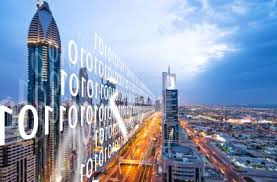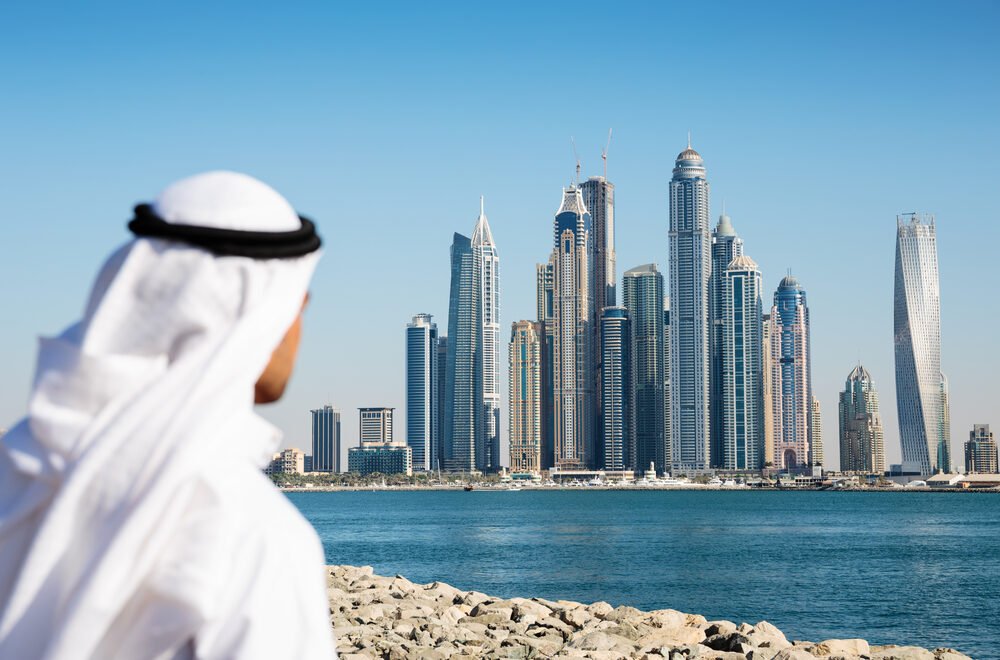Now Reading: 5 Major Blockchain Uses Streamlining Property Deals in 2025
-
01
5 Major Blockchain Uses Streamlining Property Deals in 2025
5 Major Blockchain Uses Streamlining Property Deals in 2025

Table of Contents
Blockchain Uses Streamlining Property Deals : Dubai’s real estate market, valued at AED 761 billion ($207 billion) in 2024 with 170,992 transactions (up 40.3%), is a global leader, per X posts. In Q1 2025, 111 sales exceeded AED 10 million ($2.7 million), driven by high-net-worth individuals (HNWIs) and blockchain-driven PropTech. With 6–11% rental yields in freehold zones like Dubai Marina and no capital gains tax (CGT), Dubai outperforms U.S. markets (4–6%).
The Dubai Land Department’s (DLD) blockchain initiatives, aligned with Dubai’s 2040 Urban Master Plan and 5G rollout, reduce transaction times by 50–70%. U.S. investors, leveraging Golden Visa eligibility (AED 2 million investment), benefit from these innovations. This article outlines five major blockchain applications streamlining Dubai’s 2025 property deals, with U.S. tax considerations, without external links.
Why Blockchain Is Transforming Dubai Real Estate?

Blockchain, a decentralized ledger, ensures transparency, security, and efficiency in property transactions. DLD’s Real Estate Blockchain Strategy, launched in 2017, supports smart contracts, tokenization, and digital deeds, processing 10% of 2024 deals, per web data. Benefits include:
- Cost Reduction: Cuts legal and processing fees by 1–2% (AED 20,000–40,000 for AED 2 million properties).
- Speed: Reduces deal times from 7–10 days to 1–3 days.
- Security: Eliminates fraud risks by 90%, per DLD.
- Investment Appeal: Yields of 6–11% in Palm Jumeirah; no CGT; 9% Corporate Tax (CT) above AED 375,000 ($102,000) offset by IRS Form 1116 credits.
Below are five blockchain uses revolutionizing property deals in 2025.
5 Major Blockchain Uses Streamlining Property Deals in 2025
1. Smart Contracts for Automated Transactions
DLD’s REST platform integrates blockchain-based smart contracts, automating agreements for sales, leases, and mortgages in freehold zones like Downtown Dubai (6–7.5% yields). Contracts self-execute upon conditions (e.g., payment), used in 10% of 2024 deals, per X posts.
- Impact: Cuts processing time by 70% (from 7 days to 2); reduces legal fees by 1% (AED 10,000 for AED 1 million properties).
- U.S. Tax Consideration: Legal fees deductible on IRS Schedule E for rentals; report gains on Form 8949.
- Action: Use Emaar’s smart contract-enabled off-plan units in Dubai Creek Harbour; verify via DLD’s REST app.
2. Property Tokenization for Fractional Ownership
DLD’s Real Estate Tokenization Project (March 2025) enables fractional ownership via blockchain, projecting AED 60 billion in tokenized deals by 2033. Platforms like Pryco Mint, regulated by VARA, tokenize properties in Dubai Marina (6.5–8% yields).
- Impact: Allows U.S. investors to buy $1,000 slices of AED 2 million apartments; lowers entry barriers, boosting sales by 5–10%.
- U.S. Tax Consideration: Tokenized assets reported on Form 8949 for capital gains; fractional income on Schedule E.
- Action: Invest in tokenized JVC properties via RERA-registered brokers, ensuring VARA compliance.
3. Digital Title Deeds on Blockchain
DLD’s blockchain ledger, expanded in January 2025, digitizes title deeds for freehold zones like Palm Jumeirah (7–9% yields). Immutable records reduce fraud by 90% and transfer times from 7–10 days to 1–2 days, per DLD.
- Impact: Saves AED 5,000–10,000 in legal fees per transfer; enhances trust for cross-border buyers.
- U.S. Tax Consideration: Transfer fees capitalize into basis on Form 8949; report assets over $50,000 on Form 8938.
- Action: Verify digital deeds for Nakheel’s Dubai Hills Estate units via Dubai REST; retain records for IRS audits.
4. Transparent Escrow Management

RERA’s 2025 rules integrate blockchain for escrow accounts, tracking 100% of off-plan funds until 80% project completion. Smart contracts release payments to developers like DAMAC, reducing default risks by 95%, per web data.
- Impact: Protects buyers in Business Bay (6.5–8% yields), where 60% of 2024 sales were off-plan; ensures AED 2 million investments are secure.
- U.S. Tax Consideration: Escrow payments adjust basis on Form 8949 upon completion; report assets on Form 8938.
- Action: Confirm escrow blockchain tracking for Emaar’s Dubai South projects via RERA; review SPAs.
5. AML and KYC Compliance via Blockchain
Post-FATF Grey List removal in April 2024, DLD’s blockchain-based KYC platform streamlines AML checks for buyers in JVC (7.5–8.5% yields). Source-of-funds and UBO data are verified in 1–2 days, down from 5–7, per Greenberg Traurig.
- Impact: Reduces transaction delays by 50%; ensures compliance, avoiding AED 500,000 fines.
- U.S. Tax Consideration: Report income on Form 1040, CT credits on Form 1116, assets on Form 8938 ($50,000+), and accounts on FinCEN Form 114 ($10,000+).
- Action: Submit KYC via DLD’s blockchain portal for Nakheel purchases; hire RERA-registered advisors like KGRN.
Key Considerations for U.S. Investors
- Risks:
- Oversupply: 76,000 units in 2025 may soften non-prime prices by 5–10%, but prime areas remain resilient.
- Tech Costs: Blockchain fees add 0.5–1% to transactions, offset by higher yields.
- Market Correction: Fitch predicts 10% non-prime price drops by 2026, mitigated by 5–8% prime growth.
- Tax Compliance: UAE’s 5% VAT on commercial properties and 9% CT apply above AED 375,000. IRS requires Form 1040, Form 1116, Form 8938, and FinCEN Form 114.
- Regulatory Compliance: RERA and VARA mandate blockchain compliance; fines up to AED 500,000 for violations. Verify DLD registrations.
- Currency Stability: AED pegged at 1 USD = 3.67 minimizes exchange risk.
Conclusion
In 2025, blockchain transforms Dubai’s $207 billion real estate market through smart contracts, property tokenization, digital deeds, transparent escrow, and AML/KYC compliance. These applications, reducing costs by 1–2% and times by 50–70%, enhance deals in freehold zones like Dubai Marina, Palm Jumeirah, and JVC, offering 6–11% yields. U.S. investors, capitalizing on no CGT, Golden Visa benefits, and IRS deductions, can streamline investments by partnering with RERA-registered developers (Emaar, Nakheel, DAMAC) and using DLD’s blockchain tools. These reforms solidify Dubai’s status as a global PropTech and investment hub. blockchain






















